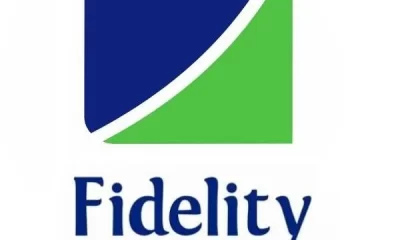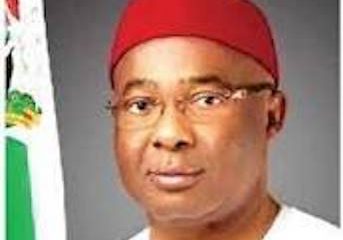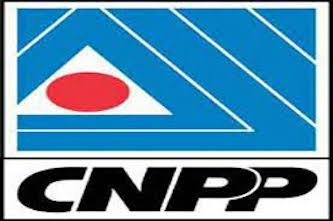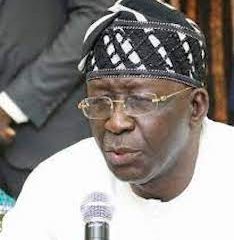Business News
NBS: 31.7% Youths Lack Access to Bank Loans
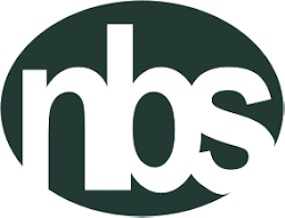
The National Bureau of Statistics (NBS), has said that 31.7 per cent of youths in Nigeria lack access to bank loans to finance their businesses due to high interest rates.
The bureau said this in its National Youth Survey for 2020, obtained from its website in Abuja yesterday.
According to it, the report is a collaborative effort between the Federal Ministry of Youth and Sports Development and the NBS.
It also said that stringent bank polices, government policies and other measures adopted by banking institutions make it difficult for youths to finance their businesses through bank loans.
Giving a breakdown of the result from the survey, the NBS said that stringent bank policies accounted for 24.
8 per cent youths not having access to bank loans, 7.3 per cent attributed their challenges to government policies while 13.2 per cent of the youths gave other reasons.“At zonal level, youths from South-South 45.7 per cent and South West 35.5 per cent could not access bank loan due to high rate of interest while youths from North-West 54.5 per cent and North-Central 33.8 per cent could not access bank loans due to stringent policies.
“Youths from South-South 15.7 per cent and North-East 13.3 per cent could not access bank loans due to government policies.”
It however said that for those that had access to bank loans, nationally, 55.1 per cent female youths had access than their male counterparts put at 44.9 per cent.
Analysing major challenges facing youths in businesses, the report said that the survey indicated different types of challenges faced by youths in their business enterprises.
According to it, nationally, 86.1 per cent of youths faced the challenge of access to fund to finance their businesses, while 4.9 per cent faced the challenge of inconsistency in government policies.
It said that another 4.6 per cent faced the challenges of obsolete equipment while three per cent faced the challenges of lack of proper training in relation to their businesses.
“At zonal level, most youths from all the zones reported the challenge of financing their businesses; youths from South-West (100 per cent) top the list followed by North-East at 93.6 per cent while youths from South-East (78.1 per cent) were least.
“However, youths from North-Central (9.2 per cent) faced the challenge of obsolete equipment for their businesses followed by youth from South-East (3.5 per cent).
“Meanwhile, youths from South- East (10 per cent) reported inconsistencies in government policies as a major challenge affecting their businesses.”
For sources of business funding, the survey reported that youths across the six geo-political zones source for funds to set up their businesses enterprises through personal savings, loans, family sources, cooperative/Esusu, grants and other sources.
It said that nationally, 34.5 per cent of youths sourced fund through government grants to set up their business enterprises, while 29.7 per cent of youths used their personal savings.
The report added that 15.1 per cent sourced funds through cooperative thrift and 2.4 per cent of the youth obtained loan to start up their business enterprises.
“The results on zonal level shows that 96.6 per cent of youths from South-South obtained grants to start-up businesses and 49.2 percent of youths from North-Central also obtained grants to start-up their businesses.
“Meanwhile, in the South-West, 26.2 per cent of youths acquired fund through cooperative thrift to start-up their businesses, while in the North-West 44.4 per cent and South-West 24.8 per cent of youths obtained funds through other sources.”
It added that across the six geo-political zones, more female youths (65.4 per cent) operated business enterprises than their male counterpart.
It said that the North-West with 82.9 per cent had the highest number of female youths who operated business enterprises followed by South-South (73.5 per cent), North Central (70.7 per cent), while the North-East had 36 per cent.
On the other hand, 64 per cent male youths in North East engaged in business, more than females followed by South-East (57.7 per cent) while the North West had just 17.1 per cent male youths in business enterprises.
For business registration, the result indicated that only 8.9 per cent of youths registered business enterprises across the six geo-political zones. (NAN)
Business News
Afreximbank Closes $282 million India-focused Club Deal

By Tony Obiechina, Abuja
The African Export-Import Bank (Afreximbank) has announced the successful completion of a first-of-its-kind India-focussed club deal for US$282.00 million.
Initiated for the exclusive participation of Indian lenders, and arranged by Bank of Africa UK PLC, the primary syndicated club deal saw participation from Indian lenders through their overseas branches and subsidiaries in the Dubai International Financial Centre in the United Arab Emirates, Singapore and Mauritius.
The facility, which was backed by six participating banks and financial institutions, including five that joined as first-time lenders to Afreximbank, helping the Bank achieve its objective of diversifying its funding sources, carries a three-year tenor.
At a commemorative event held in Dubai, U.A.E., to mark the conclusion of the deal, Haytham ElMaayergi, Executive Vice President at Afreximbank, said that the conclusion of the initiative represented a major milestone for the Bank as it sought to fulfil the key objectives of its funding programme.
Highlighting the importance of investing in, and for, Africa, Mr. ElMaayergi said: “this facility will help Afreximbank to continue to play a major role in the development of intra-African trade and trade between Africa and the rest of the world, particularly with India.
It is a testament to the rapid growth in Africa’s economic relationship with India and is evidence of Afreximbank’s growing ability to harness resources into Africa and to fund trade finance related investments that would have a positive impact on trade between Africa and India.”
Chandi Mwenebungu, Director and Group Treasurer of Afreximbank, reviewing the Bank’s vision for Africa, said that its funding objectives included achieving the diversification of its liability book by geography, investor type and tenor.
Also addressing guests at the event were Said Adren, CEO of Bank of Africa UK PLC, who thanked the lenders for their participation, and Zineb Tamtaoui, General Manager of Bank of Africa, Dubai Branch, who expressed appreciation for the opportunity to put together “a landmark deal that would be a stepping stone to many India-focused club deals going forward.”
Business News
Geregu Power Earns N50.4bn From Electricity Sales, Capacity Charges

By Tony Obiechina, Abuja
Geregu Power Plc has generated N50.4bn on electricity sales and capacity charges to Nigerians in the first quarter of 2024.
The power company which is the first listed power company of the Nigerian Exchange Ltd disclosed the performance in its Q1, 2024 financial statement.
The company grew its Q1 revenue by 225 per cent from N14.
2bn in 2023 to N50. 4bn in 2023.A breakdown reveals that Geregu Power sold energy worth N31bn and received N19bn as revenue from capacity charge.
Recall that the power company posted an annual revenue of N82.9bn in the full year of 2023 but it has covered half of the amount in Q1.
The revenue was above the company’s forecast for Q1 2024 when it projected its revenue to rise to N31.24bn.
Geregu Power recorded a profit before tax of N21.9bn up from the N5.3bn recorded in Q1 of last year, reflecting 307.8 per cent growth.
During the period underreview, the company saw its profit after tax rose by 307.3 per cent to N14.46bn from N3.54bn recorded in Q1 of last year. In the full year 2023, the company made N16.1bn net profit.
The net profit was above the company projection of N5.5bn.
Geregu Power took an income tax charge of N7.43bn, up from the N1.8bn in Q1 2023. The tax charges were higher than the N2.7bn projected for Q1 2024.
The company also spent N21.5bn on the cost of sales involving gas supply and transportation, up from the N6.6bn spent on gas supply and transportation in Q1 2023.
Business News
CBN Shakes Up Banking Sector: A Paradigm Shift Unveiled

By Ademola Oyetunji
In a surprising turn of events on Wednesday, the Central Bank of Nigeria (CBN) dissolved the boards of three prominent commercial banks – Keystone, Polaris, and Union Bank. This move, although unanticipated, transpired despite the Central Bank’s recent endorsement of these banks’ financial soundness.
Governor Olayemi Cardoso, at his inaugural address during the Chartered Institute of Bankers of Nigeria (CIBN) annual dinner last year, had lauded Nigeria’s financial sector’s resilience in 2023.
Stress tests conducted on the banking industry indicated its strength under various economic scenarios. However, Cardoso highlighted the need for banks to reassess their responsible banking framework, a sentiment echoed by President Tinubu.President Tinubu’s evident discontent with the Godwin Emefiele-led CBN triggered a comprehensive review of the financial system. A special investigator, Jim Obazee, was appointed to conduct a forensic investigation into Emefiele’s tenure, with damning revelations emerging. Recent developments suggest the initiation of a full-blown financial system reform.
The CBN’s dissolution announcement and the subsequent appointment of new executives for the affected banks, including Yetunde Oni, Mannir U. Ringim, Hassan Imam, Chioma A. Mang, Lawal M. Omokayode, and Chris Onyeka Ofikulu, might mark the beginning of implementing the investigation’s recommendations – a significant cleanup of the financial sector.
Allegations surfaced during the investigation, suggesting non-cooperation from some bank executives and Emefiele’s questionable acquisitions through proxies and cronies. Cardoso may have secured presidential approval for the CBN’s decisive action.
The CBN cited various infractions by the banks, including regulatory non-compliance, corporate governance failures, and activities threatening financial stability. Despite the challenges, the CBN assured the public of depositors’ fund safety and its commitment to upholding a safe, sound, and robust financial system.
The Special Investigator’s report revealed documents pointing to Emefiele’s involvement in Titan Trust Bank and Union Banks’ acquisitions with ill-gotten wealth. The CBN’s swift replacement of the ousted chief executives received widespread commendation, especially from high-net-worth stakeholders aiming to avert a crisis of confidence within the affected banks.
Adewale Aderounmu, an industrialist, applauded the CBN for implementing effective policies under Olayemi Cardoso’s leadership, despite detractors’ actions against the Naira. Ayomide Deepak, an Abuja-based stockbroker, welcomed the action but emphasized the need for caution in handling revelations from the investigation to prevent further economic challenges.
As the CBN wields its regulatory hammer on these banks, the hope is that other bank executives and investors will learn valuable lessons for the sake of the economy. The CBN’s action is perceived as a strategic move aimed at revitalizing the economy and financial system, not a mere vendetta.
*Ademola Oyetunji writes from Ibadan.

